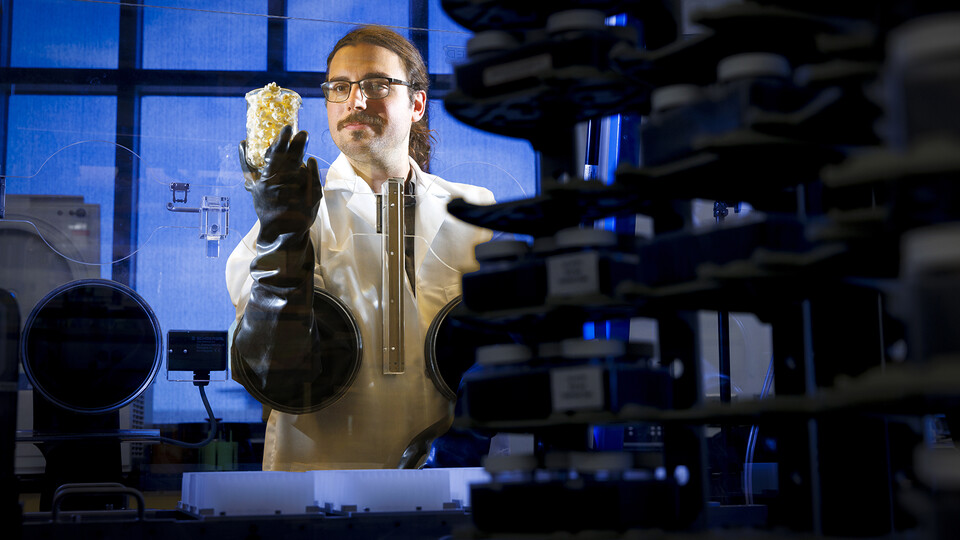Study identifies connections among popcorn, microbiome, human health

November 11th, 2022
Plant breeders traditionally have focused on factors such as disease resistance, drought tolerance and ways to boost crop yields and the producer’s bottom line — all matters of practical importance. Recent research by Institute of Agriculture and Natural Resources scientists shows the value of considering an additional factor: strengthening a plant’s ability to promote human health.
IANR researchers found that consumption of a new popcorn variety developed using conventional breeding techniques by David Holding, a professor with the University of Nebraska-Lincoln’s Department of Agronomy and Horticulture, has a notably beneficial effect on the human microbiome, the complex community of bacteria in the human gut.
As the popcorn is digested, the microbiome responds by greatly increasing its production of butyrate, a “short-chain” fatty acid that boosts human health in major ways. Nate Korth, a doctoral student with Nebraska’s Department of Food Science and Technology and co-investigator in the research project, listed some benefits that butyrate facilitates: “Curbing appetite. Training the immune system. It’s used as sort of a communication molecule between the microbiome and the human body. It also has a role in sleep function.”
Human nutrition studies involving malnourished children have shown that higher production of butyrate by the microbiome resulted in increased physical growth rates and significant gains in height and body weight.
“When we introduce changes in plants, we’re usually thinking about the agronomic qualities” such as improved disease or drought resistance, but not about “how those changes are impacting the nutrition of the crops,” Korth said. The IANR project — whose findings were recently published in the journal Frontiers in Microbiology — underscores the value of considering the nutritional effects from new crop strains.
“We hope to help facilitate that change in the future by bringing light and publicity to these varieties of plants that have enhanced nutritional properties,” Korth said. “Not only is there a market for it, but it also will improve the quality of life for people by giving them access to these staple crops, everyday foods, that have improved nutritional value.”
People can “still introduce more fruits and vegetables into your diet,” he said, “but also you can get components to feed your microbiome from the foods you’re already eating. That’s really a powerful thing, and it helps solve some of the nutritional deficits that we’re facing in the United States right now.”
The project’s findings connect directly to the mission of IANR’s Food for Health Center, whose research focuses on strengthening the scientific understanding of the relationships among food, health and the human microbiome. Korth is a research fellow with the center.
For full news story click HERE
Story by Geitner Simmons | IANR Media
